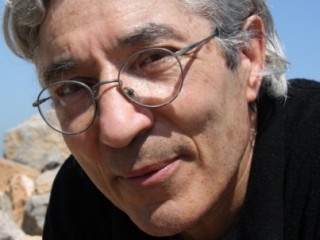
Boualem Sansal biography
Date of birth : -
Date of death : -
Birthplace : Téniet el Had, Algeria
Nationality : Algerian
Category : Famous Figures
Last modified : 2011-10-17
Credited as : author, La Terrible nouvelle. Le Monde., Frankfurt peace prize 2011
0 votes so far
After completing his training as an engineer and gaining a doctorate in economics, he worked as a high-ranking civil servant in the Algerian Ministry of Industry. He began to write relatively late – under the impact of the assassination of president Boudiaf in 1992 and the accelerating Islamisation of his country. He published his first novel, "Le serment des barbares" (1999; The oath of the barbarians), at the age of fifty. The novel was published in France and the author received great critical acclaim in the press for his playful handling of the French language, earning him admiration for his linguistic innovation. However, owing to the politically explosive subject matter of his satirical and poetic novels, he has been accused of disloyalty in his home country. In 2003 he was dismissed from his official post on account of his critical attitudes. His essay "Poste restante: Alger. Lettre de colère et d'espoir à mes compatriotes" (2006; Poste Restante: Algiers. A letter of wrath and hope to my compatriots) was banned in Algeria. Nevertheless, the author continues to live with his wife and two children in Boumerdès near Algiers, publishes his books without the protection of a pseudonym and repeatedly becomes involved in the current political debate – once again recently in his opposition to Bernard-Henri Lévy concerning the issue of the military intervention in the civil war in Libya in 2011.
In his novels, Sansal shows the Algerians, who have existed as a nation since achieving independence in 1962, possible paths to their own identity. The title of his novel published in 2000, "L‘enfant fou de l‘arbre creux" (The crazy child from the hollow tree), is particularly symbolic – the child who is tied up in the courtyard of a jail clearly stands for the Algerian nation in "this giant prison of Algeria. A childish people, blinded, held captive by lies. These people have reached a point where they neither know who they are, where they come from, nor what they want."
The exuberance of Sansal’s novels speaks for his belief in Algeria’s future, for which "Dis-moi le paradis" (2003; Tell me about paradise) offers an initial draft. His novel "Harraga" (2005) – a hommage to Algeria’s women – also salvages hope despite its tragedy.
Sansal’s latest novel "Le village de l’Allemand" (2008; The town of the German) deals with the participation of former Nazis, deployed as military trainers, in the Algerian struggle for independence.
The author’s numerous awards include the Prix du Premier Roman, the Prix Tropiques and the Prix Michel Dard. In 2008 Sansal was awarded the Grand Prix de la francophonie and the Prix Nessim Habif. On 16 October 2011, he will receive the Peace Prize of the German Book Trade. The Foundation Council said their decision had to do with the fact that Sansal is dedicated to his "insistent plea for freedom of speech and an open dialogue within a democratic society" and "to fighting against every form of doctrinaire blindness, terror or political arbitrariness".
Novels:
1999 : Le Serment des barbares, Gallimard. Prix du Premier Roman 1999. Prix Tropiques, AFD, 1999
2000 : L'Enfant fou de l'arbre creux, Gallimard. Prix Michel Dard
2003 : Dis-moi le paradis, Gallimard
2005 : Harraga, Gallimard
2008 : Le village de l'Allemand ou le journal des frères Schiller, Gallimard - Grand Prix RTL-Lire 2008, le Grand Prix de la francophonie 2008 -Prix Nessim Habif- (Académie royale de langue et de littérature françaises de Belgique). translated by Frank Wynne and published in the US as The German Mujahid (2009) and in the UK as An Unfinished Business
Short stories:
2001 : La voix, Gallimard-Le Monde
2005 : La vérité est dans nos amours perdues, in "Des nouvelles d'Algérie", ed Métailié
2004 : La Femme sans nom. Littera et l’Aube.
2005 : Homme simple cherche évènement heureux, Le Monde.
2005 : Tous les bonheurs ne valent pas le déplacement, Magazine des Beaux Arts.
2006 : La Terrible nouvelle. Le Monde.
















